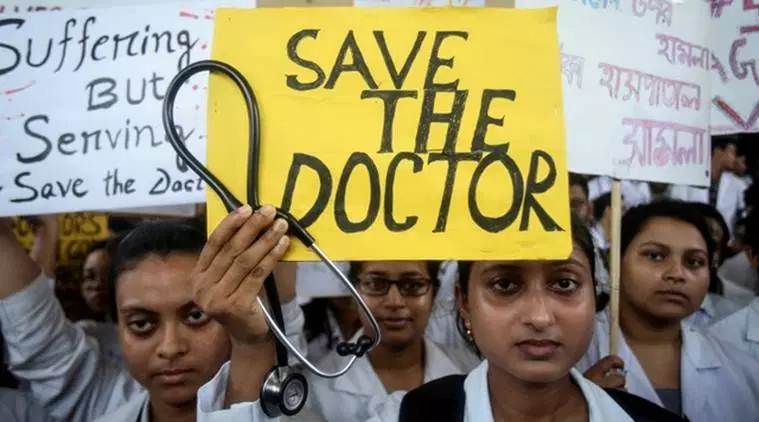
On August 1, the Rajya Sabha passed the National Medical Commission Bill which seeks to replace the Medical Council of India Act, 1956. This Bill seeks to replace the selection process of the governors of the MCI — currently, by and large, medical practitioners elected by state-level peers — with governors who will mostly be medical practitioners nominated by the Central Government. In its opposition to this bill, the Indian Medical Association has said that “the autonomy of the medical profession and the watch-dog role it should play. will be lost. It will only lead to autocracy in these institutions.” Many doctors have also risen up in protest against this Bill because a clause allows work by health professionals. But that is misguided opposition borne of the sense that doctors do special work and, therefore, should regulate themselves autonomously.
I am a doctor licensed and trained at US educational institutions like the Harvard Medical School who, returned to India in 2009 to contribute to his home country. I had started medical practice by volunteering amongst the underserved in rural Chhatisgarh and in Delhi and needed a licence, so I approached the Medical Council of India (MCI). The MCI was then embroiled in a scandal — a massive corruption had been unearthed at its very highest level and a new, temporary board of governors had been installed. I tried as best as I could and, even though I was lucky to be living in Delhi, it took me four years and nearly 50 spirit-deadening visits to the MCI office to finally get my licence.
This physician self-regulation harms Indians. Starting with training, being a doctor in the US involved me having to stay up all night ensuring that everything relevant was done for the patient and documenting those activities. The reason was a system of accountability — I could easily get sued for not providing the best care. And crucially, this also ensured that my providing good care was the responsibility of other people. Medical errors are estimated to kill 250,000 people every year in the US, the third largest cause of death in the country.
While there is no comparable data in India, it is likely that many more people die here because of the absence of accountability. When errors happen in the US, patients are empowered to seek redress from doctors. But in India, medical services are not under the Consumer Protection Act. This ensures that the patient and their kin can’t have their say and the incentive to hold someone accountable dies away. As a result, while nearly 5,000 US doctors have a disciplinary procedure in different state boards every year, in India the centralised MCI reports that only 96 have been blacklisted in the last 60 years (none since 2014). This system of unaccountability has ensured that while there are some extremely good, dedicated doctors in India, most of those I come across act in a manner more accountable to their own pockets than to the well-being of their patients.
Since Independence, goal-setting by a few at the Centre has hurt us by restricting the number of providers at the periphery. From the Bhore Committee of 1946 to the “High Level Expert Group” of 2010, goals like a 75-bedded hospital per 20,000 people, or increasing spending for universal health coverage have seemed worthy but never implemented. After more than 70 years of Independence, we are still in a position where we have only 1 doctor per 1,700 Indians, far less than the WHO standard of 1 per 1000 people.
Even those doctors aren’t where the diseases are (in some rural areas the ratio is less than 1 doctor per 80,000 people) and the vast majority of Indians therefore do not have adequate coverage. Many successive committees at the Centre have set other worthy goals while bemoaning the state of Indian health system but have not been held accountable to the implementation and achievement of those goals while people continue to suffer and die. In developed countries, many of the health regulators are not medical practitioners — health is not something special that only experts understand, power and accountability in health need to be devolved.
Healthcare in India is mostly practiced by non-physicians because we will never have enough physicians. Like other developing democracies, we have a shortfall of certified providers. There is a clause in the NMC bill, strongly opposed by the IMA, that seeks to allow upto 3.5 lakh “community health providers” to carry out some “mid-level” healthcare functions but that number is too small since some surveys estimate that we have as many as 50 lakh uncertified providers, four to five times as many as doctors, that fill the need unmet by certified providers. Accepting this reality, we work to improve the quality of many of these “Bangali doctors” (it helps because I am Bengali and, technically, one too) and have found them to be dedicated to their patients, eager to improve their skills and, importantly, answerable to their patients and local elected representatives.
Ever since Independence, centralised self-regulation of health has resulted in power and the practice of medicine being concentrated in the hands of a certified few. The NMC Bill continues that unfortunate centralisation but has allowed a token few uncertified providers to practice. Some doctors are protesting against even this in misguided self-interest but there are many others who believe that in order to make healthcare work for us all, we must devolve health practice and its regulation to us all.
The writer is the founder of Raxa, an artificial intelligence platform to improve the quality of care in India